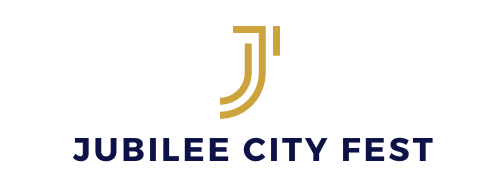Can Blockchain-Based Supply Chain Management Reduce Counterfeit Goods in the Market?

Counterfeiting is an ongoing problem that has infiltrated almost every product industry worldwide. From luxury goods to pharmaceuticals, no sector is immune from the threat. Counterfeit products not only diminish the value and reputation of genuine brands but can also pose serious health and safety risks to you, the consumers.
Enter blockchain, a technology that’s been making waves in various industries for its potential in disrupting traditional systems. It has been hyped as a game-changer in everything from finance to supply chain management. But can blockchain-based supply chain management really reduce counterfeit goods in the market? Let’s delve into how blockchain can provide a robust and trustworthy system to ensure product quality and authenticity.
A voir aussi : What Are the Ethical Challenges of AI in Autonomous Weapons Systems?
How Blockchain Works and Its Application in Supply Chain Management
Blockchain is a type of distributed ledger technology that records transactions across multiple computers. Each transaction is recorded as a ‘block’ and linked to the previous one, forming a ‘chain’. This data structure makes it practically impossible to alter past entries, ensuring the integrity and security of the data stored.
The application of blockchain in supply chain management lies in its ability to provide a transparent, immutable record of every stage a product goes through, from production to delivery to the end consumer. This transparency can deter counterfeiting by making it harder for counterfeit products to enter the legitimate supply chain unnoticed.
Avez-vous vu cela : How Is AI Improving Precision Medicine in Oncology for Personalized Cancer Treatments?
The Role of Blockchain in Authenticating Products
Imagine a world where, with just a quick scan of a QR code, you could access a wealth of information about the product you’re about to purchase. Information like where it was manufactured, who handled it, and whether it’s a genuine article from the said brand. This is the vision of blockchain-based product authentication.
Blockchain’s transparency and immutability enable each product to have a unique, traceable history. For consumers, this means a newfound confidence in the quality and authenticity of their purchases. For brands, it offers an effective means of safeguarding their reputation and ensuring the quality of their products.
Hyperledger: A Blockchain Solution for Supply Chains
Hyperledger is an open-source collaborative effort created to advance cross-industry blockchain technologies. One of its projects, Hyperledger Fabric, is a blockchain framework implementation that’s been used in various supply chain solutions.
Hyperledger Fabric’s smart contract functionality, known as "chaincode," allows businesses to encode their rules into the blockchain. This feature makes it a versatile solution for supply chains, where the rules and procedures can vary greatly depending on the product, the country, and the stakeholders involved.
Case Studies: Blockchain in Action Against Counterfeiting
A number of companies have already started to utilize blockchain technology to combat counterfeiting. You may have heard about these implementations in the news or from scholarly articles on Google.
For instance, De Beers, one of the world’s largest diamond companies, has implemented a blockchain platform called Tracr. This platform helps to verify the authenticity of diamonds and ensure they are not "blood diamonds," which are illegally mined and sold to finance conflict in war-torn areas.
Another example is the pharmaceutical industry, where counterfeit drugs are a significant issue. Mediledger, a consortium of pharmaceutical companies, uses a blockchain-based system to track and verify prescription drugs, ensuring they are genuine and safe for consumers.
The Challenges and Future of Blockchain in Supply Chain Management
While the potential benefits of blockchain in combating counterfeiting are significant, it’s essential to acknowledge the challenges it faces. Implementing blockchain technology requires significant time and money investment, and its scalability and interoperability with existing systems are still issues that need to be worked out.
However, with the acceleration of technological developments and more companies recognizing the value of blockchain, it’s likely we’ll see a growing adoption of this technology in supply chain management. As blockchain technology matures, it could very well be the key to a future where counterfeit products are a thing of the past.
Unleashing the Potential of Blockchain for Anti-Counterfeiting
In an era where information is power, blockchain technology carries immense potential for identifying and combatting counterfeit products in the supply chain. The technology’s inherent features of transparency, immutability, and decentralized control can contribute significantly to anti-counterfeiting efforts across diverse sectors.
To begin, blockchain’s transparency feature enables every transaction within the supply chain to be visible to all participants, thereby deterring illicit activities. A brand owner, for example, can monitor the movement of their products across the supply chain in real time, ensuring that no counterfeit goods infiltrate the legitimate supply chain.
Next, the immutability of blockchain makes it virtually impossible to alter or delete information once it’s been recorded. This feature can help businesses and consumers alike by guaranteeing that the product’s history remains untampered, thus elevating trust in the product’s quality and authenticity.
Finally, the decentralized nature of blockchain eliminates the need for a central authority. This aspect can democratize the control of data, making the supply chain more resistant to corruption and manipulation by single parties.
Moreover, smart contracts, a powerful feature of blockchain, can automate various processes in the supply chain. These self-executing contracts with the terms of the agreement directly written into code can ensure that transactions are carried out only when the predefined conditions are met. This mechanism can further improve the efficiency and reliability of the supply chain, making it even more challenging for counterfeit products to creep in.
Blockchain: The Guardian of Product Authenticity in the Future
As we look into the future, it’s clear that blockchain holds great promise in redefining supply chain management and significantly reducing counterfeit goods in the market. This technology could potentially revolutionize the way we verify product quality, track raw materials, and authenticate genuine products.
While today’s consumers rely heavily on brand reputation and regulatory bodies to guarantee product authenticity, with blockchain, consumers themselves could verify this information. By scanning a QR code or similar identifier, you could open a separate window into the product’s entire journey from raw materials to the point of sale.
However, it’s also crucial to bear in mind that while blockchain has the potential to tremendously curb counterfeiting, it is not a silver bullet. The implementation of this technology requires substantial resources, and many technical challenges, such as scalability and interoperability, remain to be addressed.
Still, one fact remains clear: blockchain has started to reshape supply chain management, and this trend shows no signs of slowing down. As we move forward, more studies and pilot projects will likely emerge, further exploring and refining the role of blockchain in anti-counterfeiting efforts.
In conclusion, blockchain-based supply chain management could be a major game-changer in the fight against counterfeit goods. As this technology continues to mature and gain broader acceptance, we may soon see a world where the authenticity of products is guaranteed, not just by the brand owner or regulatory bodies, but by a transparent and immutable digital record.
